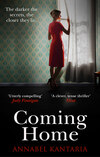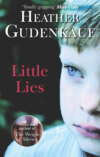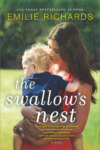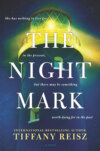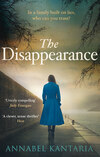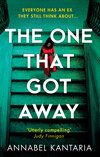Читать книгу: «Coming Home», страница 4
CHAPTER 13
After Mum had settled downstairs with her tea, I took Dad’s address book upstairs. After the scene on the landing, I thought it was better that I make the calls. The address book was faded and worn and, when I lifted it to my nose, I could catch the scent of my father impregnated in the leather. I imagined him sitting in his study, his long fingers thumbing through the pages crammed with carefully written names, numbers and addresses.
I made the calls from my bedroom, not wanting Mum to hear me repeat the same things over and over. ‘Yes, died in his sleep … very peaceful … yes, she’s fine, thank you … I’m here to help … yes, funeral’s on Friday at eleven … no flowers, money to charity …’
It made for a wearing afternoon’s work. Dad was one of the first in his peer group to pass away, and many people were so shocked I ended up consoling them rather than the other way around. It was tedious, but I was keen to get it over with; happy that I was able to do it for Mum.
Under ‘D’ I found the number for Miss Dawson, my old grief counsellor. I chewed my pen and stared out of the window. Would she want to know? She’d seen a lot of me after Graham had died, had almost become a friend. I wondered what she was up to now. I’d have thought she was in her late thirties when she was helping me, so she must be nearly sixty now. I added her number to my phone, clicked ‘Call’ and waited while it rang.
‘Hello?’ Her voice sounded muffled, as if she were talking from a previous century.
‘Hello. I’m looking for … umm …’ I realised I didn’t know her Christian name. ‘Miss Dawson?’
‘Yes, speaking. Who’s calling?’
‘Miss Dawson! It’s Evie. Evie Stevens.’
Not even a pause. ‘Evie! How lovely to hear from you. What are you up to now? Still knitting?’
‘And some!’ I laughed. ‘I knit for charity these days. Let’s just say there are a lot of sailors in the world wearing warm hats thanks to you.’
She laughed. ‘It wasn’t as random as you think.’
‘What do you mean?’
‘I had a theory that you were stopping yourself from talking. I wondered if getting you to focus with all your consciousness on small repetitive tasks might allow thoughts from your subconscious to surface. You were my guinea pig. It was a technique I went on to use on many of my other clients.’
‘Wow! I had no idea. I thought you were just trying to fill the time.’
We chatted about Dubai, what I was doing; I told her why I was back. She was touched to be invited to the funeral.
‘But how’s your mother?’ she asked. ‘How’s she taking it?’
‘She’s OK, I think. She seems very organised. Together.’
‘Well, I’m glad to hear that.’ She sighed. ‘Look, I probably shouldn’t say this, but you know it was her we were worried about most back then.’
‘Really?’
‘Yes. You were a resilient little thing. A tough cookie. Devastated, obviously, but your grief ran through the natural stages.’
‘And Mum’s didn’t?’ I was talking quietly, scared that Mum would come upstairs and overhear.
‘Well. It was very—how to say it?—extreme. Wasn’t it? It was what we’d call a “complicated grief”—a grief dysfunction, of sorts. Your mother found it exceptionally difficult to accept the loss of Graham. Even when she appeared to start functioning more normally, we were worried she was suppressing it. I tell you this because an event such as this, such as your father passing away, could bring it all back.’
‘Hmm.’ Just what I was thinking. ‘I’m trying to help … you know: be there for her.’
‘Evie, you always have been there for her. You can only do your best—and I know your best is very good. But, if you’re worried about anything or need to speak to me at any time, please don’t hesitate. I’m sure she’ll be fine, but keep an eye on her. It’s a difficult time.’ She gave me her email address.
‘Thank you,’ I said. ‘I hope I don’t need it.’
As the afternoon wore on, I made good progress through the address book. Luca had been out when I’d called his house, but I left a message and my number. I didn’t know, though, what to do about my uncle—Mum’s brother—the black sheep of the family. Would he want to know that his brother-in-law had passed away? Did I have the right to tell him if Mum didn’t want to contact him?
‘How are you getting on?’ asked Mum, surprising me, long after I’d had to click on the light.
‘Fine,’ I said, sighing. I flicked through the remaining pages of the address book. ‘Probably only five or six more and I’ll be done.’
‘We must remember to invite the headmaster,’ she said. ‘It’s probably the “done thing”.’ She made the little quote marks in the air.
‘What headmaster? You mean of the university?’
‘Doh, Evie, don’t be silly. Of the school!’
I froze. Twice now. ‘University,’ I said, treading on eggshells. ‘Dad worked at the university.’
Mum bent down to pick up a tissue that had missed the bin, placed it in. Then she looked up at me. ‘Of course. What did you think I meant! Silly girl. Yes, the chancellor, or whatever, of the university where Robert taught. It’s probably only polite to invite him. Will you do that? Anyway. Look. There’s one more thing I wonder if you can help me with before you disappear back to Dubai?’
‘Sure.’ I wasn’t paying attention one hundred per cent. I was flicking through the address book, pretending to look at names while Miss Dawson’s words circled in my head: extreme reaction … complicated grief … we were worried she was suppressing it … your father passing away could bring it all back.
Mum’s voice broke into my thoughts. ‘I’d like you to help me clear out the attic. All your brother’s stuff is up there—’ I stared at the address book, unable meet her eye ‘—and I don’t think I can face it. But …’—and I do wonder if she paused here for dramatic effect, or if she was nervous of my reaction—‘I’m planning on selling the house. In fact, I’ve just made an offer on a new one.’
CHAPTER 14
Well, after that bombshell, I begged Mum not to rush into anything, but she seemed adamant that she wanted to sell the house—apparently she and Dad had been planning to do it before he died and had already put in the offer. If I’d learned anything about bereavement from my sessions with Miss Dawson, it was that you shouldn’t rush into making any major changes. Such as selling your house.
‘The new place is just around the corner,’ Mum said, batting away my concerns like lazy bluebottles circling her face. ‘Your father liked it a lot and I don’t want to lose it. It’s a much smaller house—more manageable and cheaper to run, especially now I’ll be on my own—but it’s in a better location? In the conservation area?’ Her intonation rose at the end of each sentence, as if she were asking my approval. ‘I’ll show you tomorrow, if you like? We can take a walk by. House prices there are just going up and up, and they do say “location, location, location”, don’t they?’
She stopped talking and I didn’t fill the silence.
‘Anyway, they haven’t accepted my offer yet,’ she said eventually. She wasn’t looking at me; she was examining the paintwork of the doorframe intently, running a finger over it.
I thought of the £22,000 debit from Dad’s account. That must be what it was for. ‘So had you and Dad put money aside for the deposit?’
Mum looked at me. ‘No …’
‘Oh … how about legal fees? Have you had to pay anything yet? For surveys?’
‘Why do you ask?’ Something in Mum’s voice warned me not to go further.
‘Oh … no reason.’
There was another silence. To be honest, I was too tired and too shell-shocked by the events of the last forty-eight hours—not to mention by the lack of sleep—to be in a position to talk further about it. Mum and Dad had lived in our house for nearly thirty years; it was the home into which I’d been born. I couldn’t understand how or why Mum would want to move so fast. But exhaustion rendered me incapable of expressing even that much.
‘Can we talk about it in the morning?’ I yawned, looking pointedly towards my bedroom door.
I woke the next day with Dad on my mind. I’d dreamed about him in the night, knowing in the dream that something was vaguely wrong, but not understanding what it was. For a few seconds, in that hazy state between sleep and wakefulness, I was unable to place where I was, or why. There was something I needed to do for Dad but where was he? Then, as the morning sun streaked through my curtains, it all came back. I resolved to spend the day clearing out the attic and going through Dad’s papers. The missing £22,000 made me feel uneasy and I was determined to get to the bottom of it.
Downstairs, I found a note from Mum saying she’d popped up to the High Street, so I grilled the life back into a couple of croissants I found in the freezer, made myself a coffee and heaved the first of Dad’s box files onto the dining table, where I spent the best part of the morning painstakingly matching up each receipt from the ‘Receipts’ file with each debit from the account, credit card bill or cheque stub.
Kudos to my father, every single one matched—except the most important one; the one that had piqued my curiosity. I could tell the missing £22,000 had been transferred to another bank account—the logical assumption was that it was a savings account—but I couldn’t find a record of the recipient bank account in any of the files. I slammed my fist against the table in frustration, figures dancing in front of my eyes. Dad had receipts for new windscreen wipers at £14.99 a pair, for heaven’s sake. How could he forget to document where £22,000 went?
Furthermore, I was now in an even worse position than I had been when I started. Instead of finding a solution, going through the papers like a penny-pinching accountant had thrown up a new problem: I’d now found a payment of £1,000 that had gone to the same bank account every single month as far back as Dad’s statements went. It, too, was lacking receipts; unexplained. There was a printed screenshot to show that Dad had stopped the payment just before he died, but I couldn’t find any further details about it. ‘Curiouser and curiouser,’ I said, staring at the statements, as if burning the digits onto my retinas might yield an explanation.
If it wasn’t for a home deposit, what could it be? A deposit on a new car? A holiday? Garden landscaping? Some sort of investment? A shudder ran through me. James had always been telling me about the dodgy investment scams that people—especially the elderly—fell for: Ponzi schemes, non-existent companies, prime banks and so on. Had Dad been conned into handing over money for something like that? I’d almost rather not know.
Mid-morning, my thoughts were interrupted by Mum bustling back into the house with bags of shopping.
‘Morning, darling!’ she said. ‘It’s a gorgeous day! Sorry I took so long! I bumped into Lily and we stopped for a coffee. What have you been up to?’ She peered at the table, barely pausing for a reply. ‘Ooh, the files. Thank you! Do you think you’ll be able to go up to the attic today? I dread to think what’s up there—I haven’t been up since …’ Finally, she tailed off, her attention focused intently on the marmalade jar that still sat on the dining table—the same cut-glass jar I remembered from my childhood. A tiny shake of the head, then, ‘Do you have any other plans for today?’
I shook my head.
‘You should go out while you’re here,’ Mum said. ‘You haven’t seen your friends for so long. Whatever happened to that nice girl who was at junior school with you? You know, the one you shared a room with on the school trip to France?’
‘Oh … goodness knows. We were never really friends.’
The phone rang.
‘Who’s that?’ Mum leant over to pick up the clunky handset of her new retro phone. ‘Oh hello!’ she chirped. I listened as she made plans to meet whoever it was on the phone that evening.
‘That was Richard,’ she said when she hung up. ‘He’s got a voucher for a free curry down the road and he’s just noticed it runs out today. He’s asked me to go out for dinner with him. You don’t mind, do you?’
Did I mind? With my father not even buried, I didn’t really know what to think. I shook my head, confused. Mum smiled.
‘Thanks, darling,’ she said. ‘He’s really quite harmless. And it’s only a curry.’
CHAPTER 15
‘And how do you feel?’ Miss Dawson asked. ‘Are there times when you forget that Graham’s no longer here?’
How did she know? The headmistress must have told her about the day of the school photos. I wished the earth would swallow me up when I thought about that day.
My teacher had been stressed. I could tell by the way she was rubbing her forehead and circling her fingers around her temples as she tried to mark our maths tests. Every now and then, her head would pop up. ‘Quiet!’ she’d say, but it was more of an exasperated sigh than an instruction.
It had been a rainy morning and the class, like the weather, had been particularly disruptive—aside from the novelty of arriving at school in wellington boots for the first time that autumn, we’d all been excited because it was school-photo day, and that meant a break in routine; something different to working on our never-ending history projects.
At 10 a.m., I’d asked my teacher if I could go for my photo.
‘Sure,’ she’d said and there’d been a micro-pause as she’d struggled to remember my name. She was new and she always got me mixed up with Emma. Then Adam had howled in pain and her attention had flipped to him and Jason, locked in a battle.
I’d slipped quietly out of the classroom and headed for the main hall, my plimsolls squeaking with every step on the polished parquet flooring. I loved school-photo day. As we sat in the queue waiting our turn, I loved watching the smiles people put on for their minute in the spotlight; seeing how their faces changed for the camera.
Outside the toilets, I’d hesitated then ducked in at the last minute. Although there wasn’t a lot of point in me trying to comb my wild hair—any contact between it and a brush generally earned me the nickname ‘Basil Brush’—I’d dampened my fingers and smoothed down the sides as best I could before heading to the hall. Mum would have never forgiven me for having messy hair in the school photo.
The queue wound away from the main stage, the children waiting patiently on the floor in twos and threes. But I was alone. Something wasn’t right.
Mrs Hopkins, the headmistress, had bustled towards me, her face creased with concern. ‘Evie, dear,’ she’d said, putting her hand on my arm. ‘Your class photo’s not till this afternoon.’ I stopped as it dawned on me what I’d done. ‘Let me take you back to your classroom,’ she’d said, gently taking my hand.
Three months after my brother died, I’d turned up for the sibling photos. A week later, I’d been referred to Miss Dawson.
‘There was only that one time at school,’ I told Miss Dawson. ‘And sometimes first thing in the morning when I wake up I forget for a minute and then it all comes back. That’s when I miss him the most.’
CHAPTER 16
Upstairs in my room, I sat at the desk at which I’d revised for my GSCEs and A levels and opened my old address book—somehow, in the rush to pack, I’d remembered to bring it with me. Mum had got me thinking about my old school friends and I wondered who, aside from Luca, was still around. My best friend from school certainly wasn’t—she’d met an Australian guy at university, married him and disappeared off to Australia as soon as she’d graduated. I’d been out to visit her once and she’d stopped off in Dubai for a couple of days, too—it was the type of friendship we could just pick up, no matter how many years went by.
My favourite person in the world lived in Warwick. Clem was the reason I’d moved to Dubai in the first place. Since we’d met on the Student Union dance floor doing our Gloria Gaynors to ‘I Will Survive’ at the Monday night disco, we’d been inseparable throughout university.
‘Promise me we won’t get sucked into corporate life,’ she’d said as we’d studied in her room for our third-year finals, the threat of real life hanging over us like a guillotine. ‘Let’s travel together, see the world.’
‘How?’ I’d asked. ‘We don’t have enough money for the launderette. How are we going to fly around the world?’
‘Easy. We get jobs that pay us to travel: we’ll be cabin crew or ski chalet girls. We’ll get jobs in a bar in Mykonos and party like Tom Cruise in Cocktail.’
Huddled in duvets in digs lashed by the relentless rain of the Midlands, she’d dreamed up our plans for a life in the sun; I’d dreamed of a life away from the ruins of my family.
But things hadn’t worked out quite as planned. One night, when we’d both been unemployed for several months, we were sitting in a London wine bar making our Happy Hour drinks last as long as we could when Clem had dropped the bombshell.
‘So,’ she’d said, and I’d known at once it was bad news. Her energy was off-kilter and she’d been preoccupied all night. ‘There’s something I have to tell you.’
I’d stared at the nicks in the wooden table, wishing I could stop time right there, for I guessed what was coming. I arranged my face, made it smiley, before I looked up at her.
‘I’ve got a job in Dubai,’ she’d said. She was trying to break it to me gently but the luminosity of her face gave her away; she’d tried not to smile but I could tell she was fizzing with excitement. ‘I’m going to be a PR executive.’
I’d opened my mouth, but words wouldn’t form.
‘Evie, I have to go. It ticks all the boxes. Sun, sand, a good salary, an accommodation allowance—it’s even tax-free.’
I’d bobbed my head like a nodding dog. Of course she had to go. At last the words came out right, but the light had gone out of me. I’d wanted more than anything to be going with her. She’d booked her one-way ticket, and I’d gone reluctantly back to job-hunting in London.
But, despite being unemployed, I hadn’t had time to feel lonely. While I’d been away studying, Mum had retreated from everyday life until she’d virtually become a recluse. She lived in a world she perceived to be fraught with danger. Once I was back from university, and with Dad away so much for work, I took the full brunt of this paranoia. I could understand Mum’s fear of me crossing the road; I could understand why she didn’t want me to own a bike. But everything else?
And now the fear was no longer just for me: it was for herself, too. Mum had let friendships lapse and she rarely went out—when she did, it was a small trip to the closest supermarket to buy groceries. Heaven help if anyone told her about Ocado. She was becoming a hermit and I worried about her. I knew that if I lived nearby it was a small jump till she became totally dependent on me. But we were both too young for that. Instead, I came up with a two-pronged plan of attack.
Part one: I was going to persuade Mum to take a job—it wouldn’t only get her out of the house and force her to interact with people, but it would, I hoped, help her get her confidence back. After she was established in a job I hoped she’d enjoy, I’d move on to part two: I was going to follow Clem to Dubai and force Mum to stand on her own two feet. This latter part of the plan I had no problem with—if necessary I’d scrape together enough money for a ticket, fly out on a tourist visa and look for a job while I was out there. Clem’s Facebook updates showed me tantalising slices of life in Dubai and I yearned to be in the sunshine with her.
The former part of the plan, though, was more tricky. Aside from a secretarial job at the university where she’d met Dad, Mum had never really had a career. Working wasn’t in her mindset and Dad earned enough that there wasn’t really any financial pressure to motivate her.
I’d trawled through the local job ads, looked at cards stuck in newsagent windows and even went to the Job Centre once, but nothing I suggested took Mum’s fancy, even the job as assistant in the flower shop, which I’d thought would really appeal to her.
‘Oh, good God, no,’ she’d said, as if I’d suggested she retrain as an astronaut. ‘Have you any idea how cold it gets in that shop in winter? With those stone floors and all that water about? Oh no, darling, that’s not for me.’
Eventually, though, I’d secured her an interview at Woodside Hospital, to work as an admin assistant. Mum hadn’t been able to come up with an excuse not to go and that, as they say, was that. The job—keeping charge of a busy consultant—had, ultimately, been the making of her and, a couple of months later, I was on the plane to Dubai. Clem and I had proceeded to paint Dubai not just red but scarlet, indigo, magenta and fuschia.
For two single girls living together in a city that never sleeps, the phrase ‘burn the candle at both ends’ could never have been more appropriate. But then, at a ‘fondue and a bottle of white’ night, we’d got chatting to Patrick and James, a couple of well-spoken guys who’d seemed a snip above the usual Dubai blokes.
We’d double-dated them for a while, then flat-swapped—me moving into James’s palatial villa, and Patrick moving in with Clem. Finally, a year later and thinking ourselves ever so very clever, we’d all got engaged and thrown a huge party in the lush gardens of The One&Only Royal Mirage Hotel.
But that’s where the similarities ended. While Clem and Patrick had got married, moved back to Warwick and had twins, James and I had staggered towards our bitter break-up—infidelity’s not a trait I look for in a husband. Clem was now the mistress of a quaint tea shop selling coffee, tea and cake to tourists up to see Warwick Castle while Patrick ran a successful pub. I knew Clem would be busy with the twins, but I sent her an SMS anyway.
That done, I logged onto Facebook on my iPad. After scrolling through the newsfeed, I sucked my cheeks in and typed ‘Luca Rossi’ into the search box.
He’d mentioned he was on Facebook—that meant it was OK to ‘friend’ him, didn’t it? It had been weird-in-a-nice-way to bump into Luca after so long. Just hearing his voice again had made me feel safe; it was as if he dropped an invisible cloak of protection over my shoulders. Luca was so different to the men I met in Dubai; so very, very different to the razzle-dazzling, lying, cheating James. Luca was what he was; there was no pretence, no show, and I liked that. He knew about Graham. He knew the scars that lay inside my heart. With Luca, I could be myself: no explanations.
‘To see what Luca Rossi shares with his friends, send a Friend Request.’ I stared at the tiny picture of Luca that came up on the screen, my finger hesitating over the mouse. Would ‘friending’ him send the wrong signals? I was still reeling from my break-up with James, the word ‘rebound’ pulsing in my mind’s eye, and I didn’t want Luca to think I wanted anything more than a connection for old times’ sake.
But the pull of seeing someone who knew my past was too strong and I fired off the request, adding in a message: ‘It was great to see you. I’m around for a bit. Let me know if you fancy a coffee. Cheers, Evie.’ Just the thought of being Facebook friends with Luca made me smile. Although I was totally off men, he was different … I knew him. I knew his family, his background, his people. It wasn’t like he could spin a web of lies like James had.
James had dazzled me from the night we’d met—I’d never in my life come across anyone so handsome, so charming, so fearless and spontaneous. On our first date—the morning after we’d met in the wine bar—he’d taken me skydiving over Palm Jumeirah for goodness’ sake. He’d told me he dabbled in a bit of commodities trading but made most of his money working as an advisor to a Sheikh. New to Dubai and green as they come, I’d lapped it all up, naively believing that James really was ‘working on an important project at the palace’ when he was actually sleeping with Shelley or Susan or Tracey at their airline crew accommodation. Our engagement had come to an abrupt end when Shelley had bumped into us having a cosy dinner in the beach restaurant of the very hotel at which we’d got engaged.
‘What are you doing with my fiancé?’ she’d asked before turning her fury on James. I liked to imagine someone had managed to retrieve both our engagement rings from the sea where we’d flung them. Now I shuddered thinking about that night.
I flicked once more through my address book, concluding that, after being away for so long, I had no real friends currently residing in Woodside. But I had one more thing to do. Opening my email, I looked up the address I had stored so recently.
‘Dear Miss Dawson,’ I typed. ‘It was lovely to speak to you today, and thank you for being so kind. As it happens, I am quite worried about Mum. She’s not herself (obviously)—she had a really bad reaction to a police car that went past with its sirens on, and now she’s told me she’s selling the house we’ve lived in all my life. Dad’s not been gone a few days. More seriously, though, she’s confused Dad’s death with Graham’s twice now. Once I could have overlooked, but twice? Is this to be expected? Should I try to get her to see you? Sorry to ask, but you’re the only person who knows all the background. With thanks and warm regards, Evie.’
Начислим
+20
Покупайте книги и получайте бонусы в Литрес, Читай-городе и Буквоеде.
Участвовать в бонусной программе
